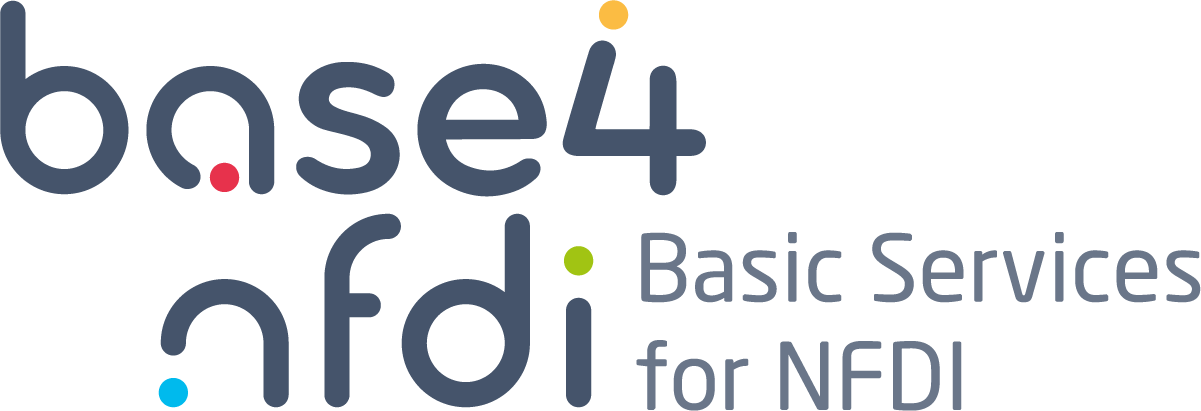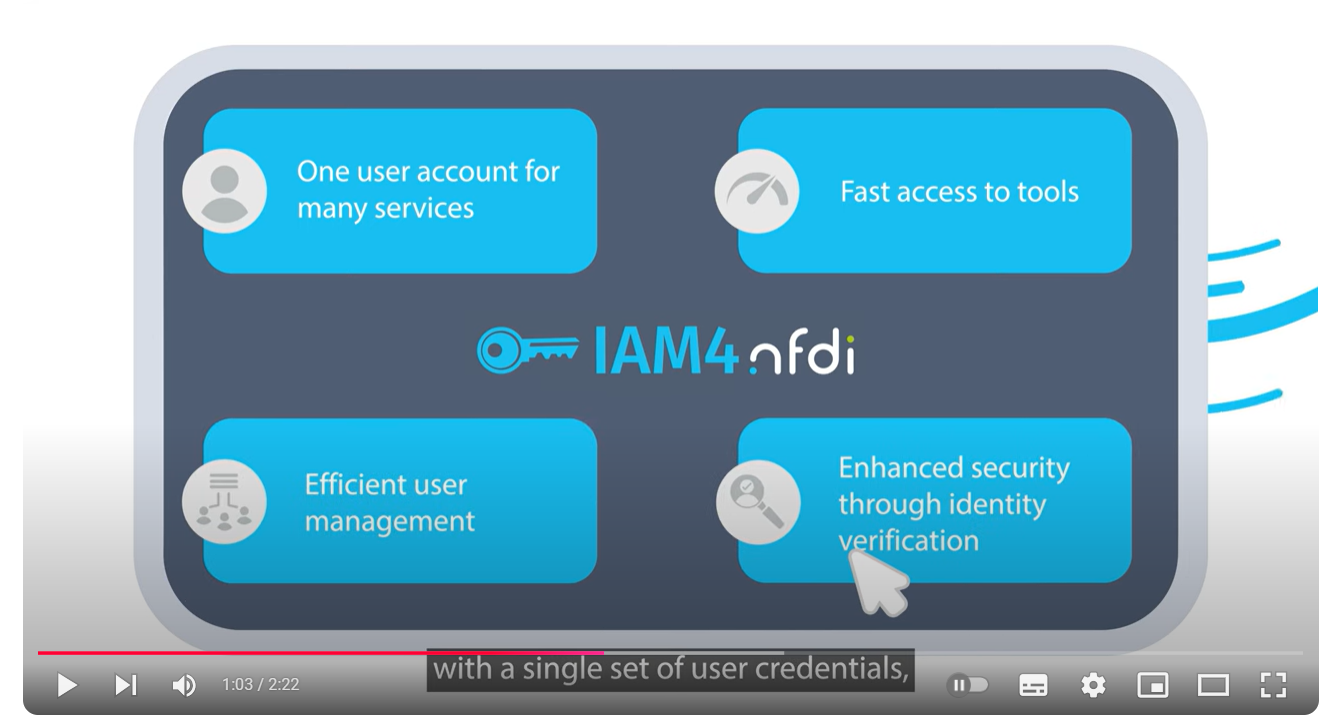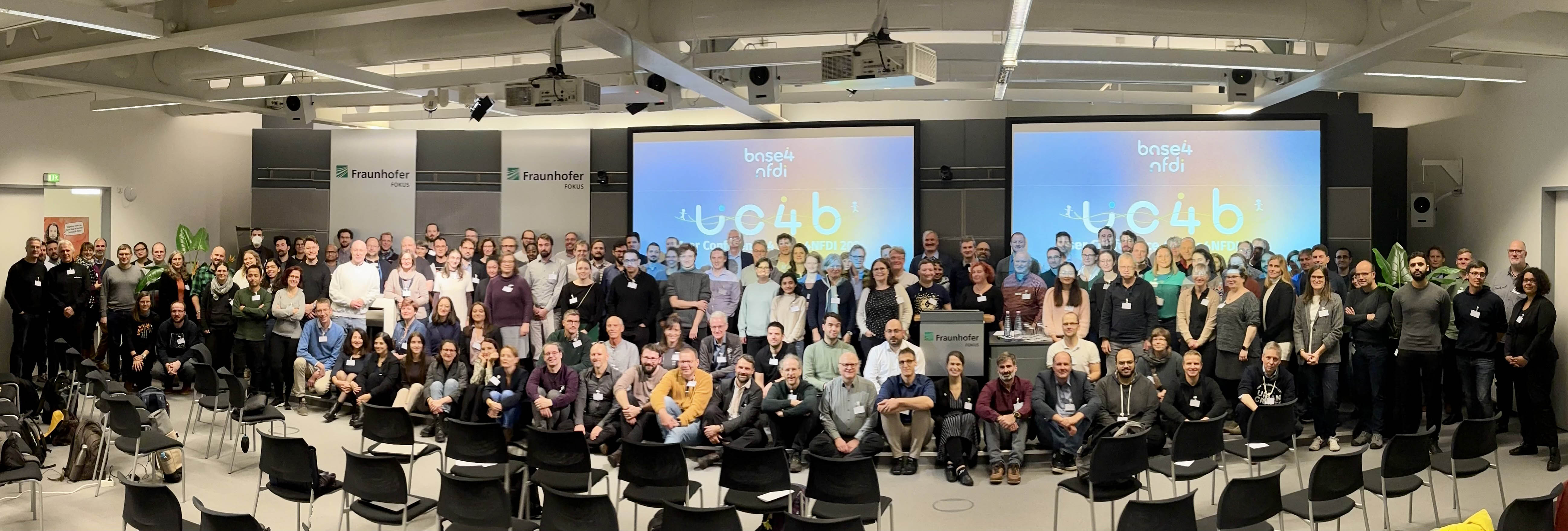
2024-11-25
Thank you for participating in-person at Fraunhofer FOKUS Berlin and online in our first User Conference in Berlin 2024! To us, it was an inspirational, engaging, and fruitful one and a half days. It showed us where we stand and what’s ahead of us. While our in-person capacity was limited to 200, we were more than happy to welcome people online as well.
The goal was to showcase currently funded and future basic services, examine how particularly consortia can (technically) integrate the service, and find overlaps to services from the NFDI community.
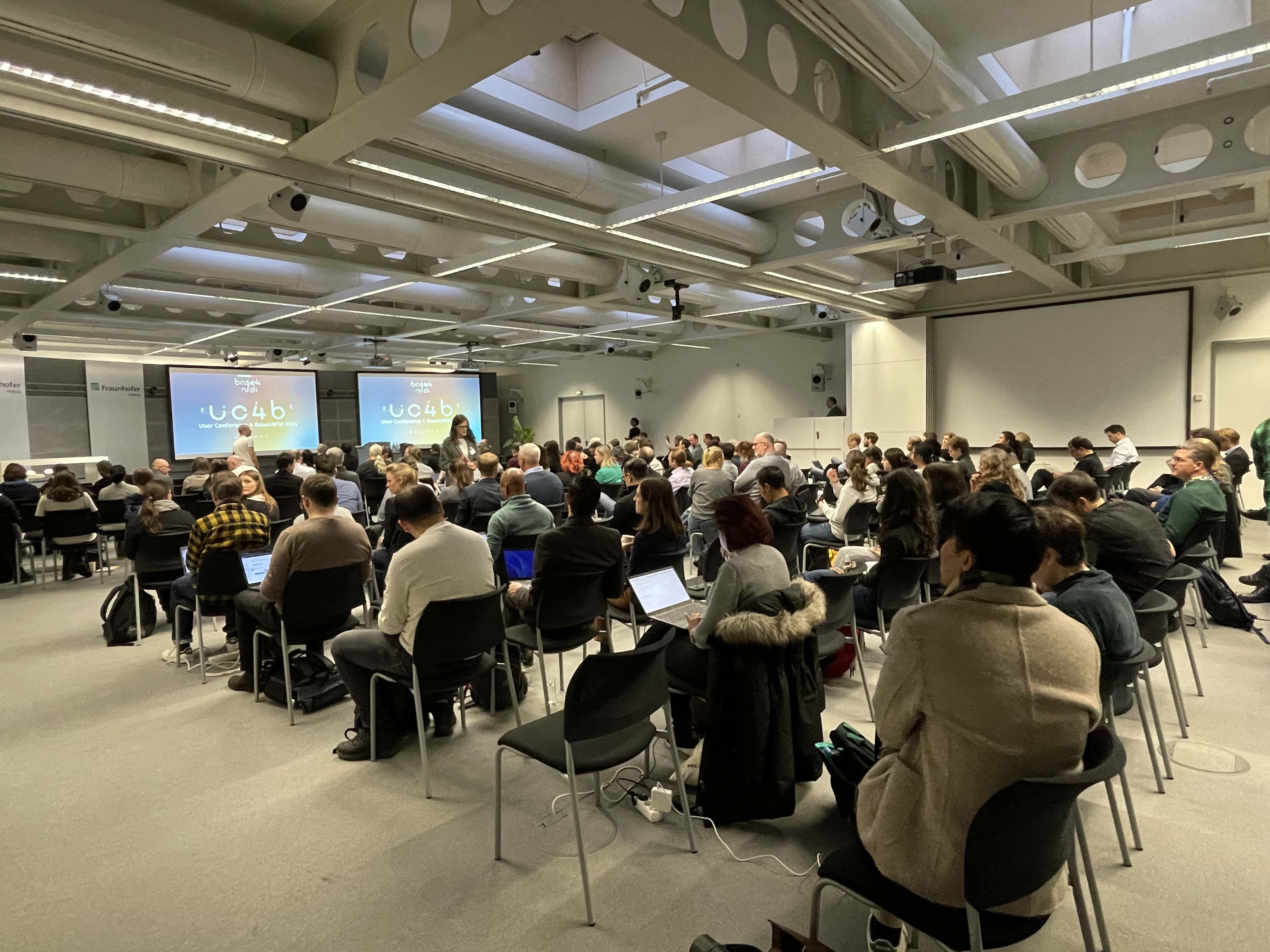
The interactive programme began with a keynote talk by Lilli Freda and Daniele Bailo (EPOS ERIC) about EPOS. EPOS is an open science, community-driven one-stop shop platform that collects and provides crucial data on natural disasters (e.g. tsunamis, earthquakes) with a standardised schema to facilitate decision-making for policy makers and politicians. Its multidimensional approach serves as an inspiration for our efforts in Base4NFDI (and NFDI as a whole).
On the first day, the programme covered aspects of the services in the Initialisation phase (Jupyter4NFDI, DMP4NFDI, KGI4NFDI, nfdi.software). The service teams presented insights on how to connect the services with each other within Base4NFDI and in extend to the NFDI Consortia.
Additionally, the floor was opened to further fields, allowing for approaches that are not realised as a basic service as such (yet). The talks spanned from the Research Commons Approach as a potential opportunity for Base4NFDI to the challenges of setting up a sustainable Research Data Infrastructure to the meaning of archiving for research data (to name but a few).
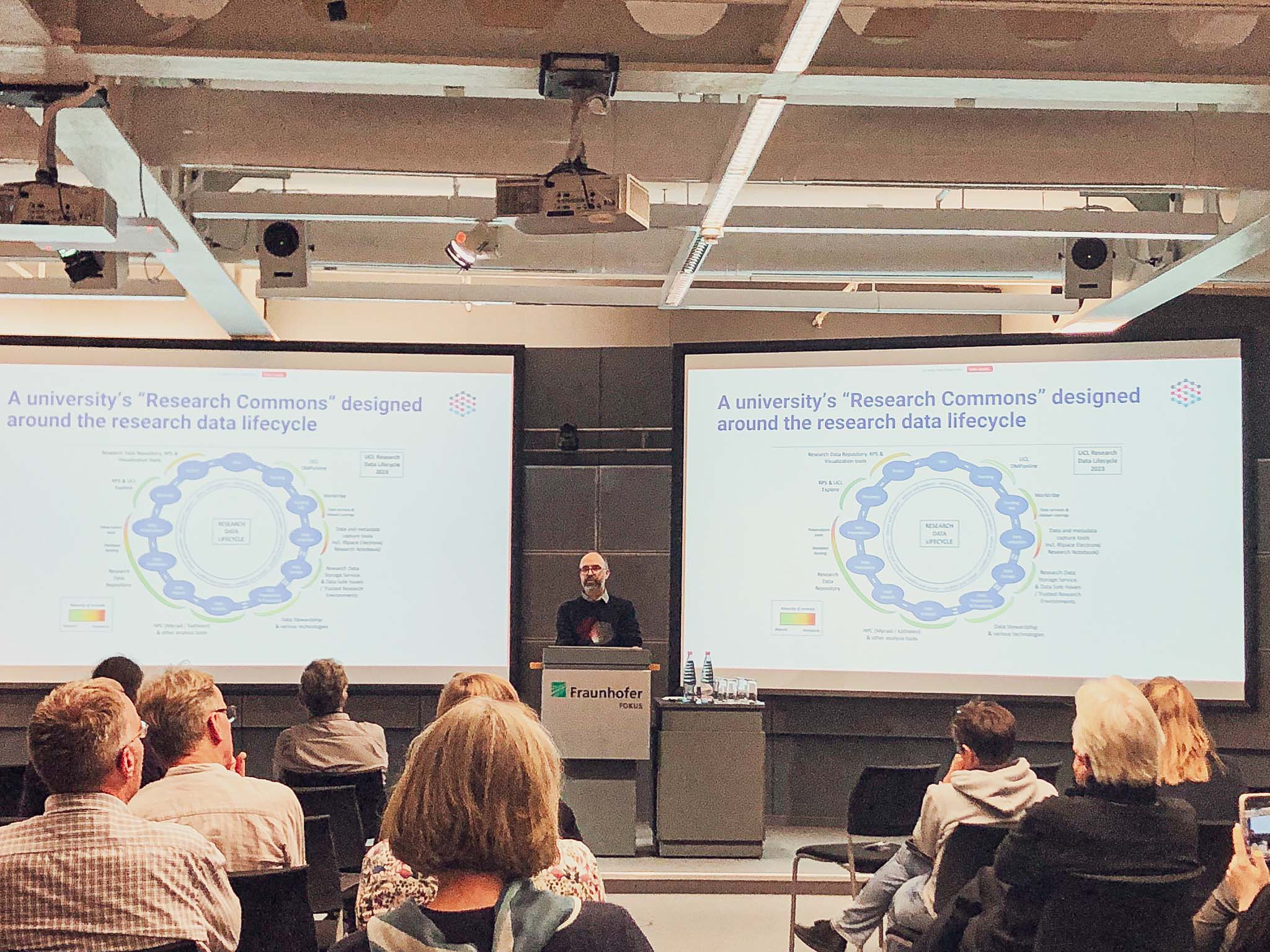
The presentations and discussions were complemented by a poster session, giving the participants a chance to get insights into even more topics. Furthermore, the informal evening reception enabled further discussions and hence, set the tone for the following day.
The second day began with presentations about those basic services currently in the Integration phase (IAM4NFDI, TS4NFDI, PID4NFDI). The IAM4NFDI team began the session with exciting news, launching their explainer video.
WATCH THE EXPLAINER VIDEO HERE: https://base4nfdi.de/projects/iam4nfdi
Generally, all talks were concerned with questions on how to align with other infrastructures both nationally and at European level.
To end the 1st Base4NFDI User Conference on an exciting note, incoming services were presented, primarily focussed on optimising the understanding of RDM, e.g. via teaching and training, a digital data steward, and ontologies.
Besides the talks, the UC4B was an opportunity to get together with the different stakeholders involved in the entire Basic service effort – within NFDI and beyond. Connecting the relevant people and supporting their communication was one of the efforts of this User Conference. We are already looking forward to the 2nd UC4B next year. See you there!
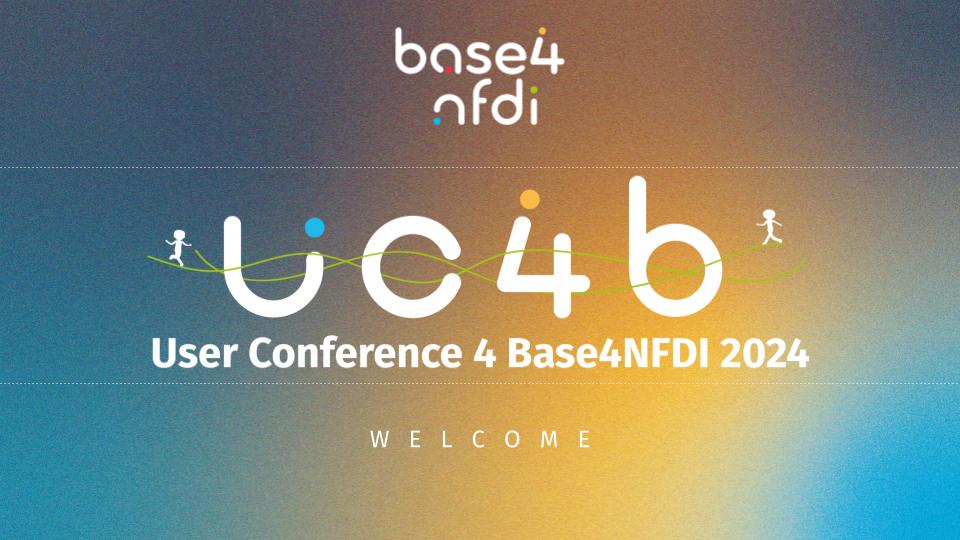
Some key take away’s
- Ensure to widening the user base: A common thread was the need to open up to more institutions and include all the RDM activities at national level in Germany in the relevant Base4NFDI services.
- Harnessing diversity: Appreciating the many different approaches the consortia have with each service or content creation and identifying a harmonised approach across the services at a technical level (standards, repository types) and also semantic (terminologies, ontologies).
- Trusted, efficient services need: Security, sustainability and reproducibility, data quality and benchmarking and where relevant should be set as a standard part of service creation.
- Harmonisation: Of data and of services. Many of the types services and potential initiatives presented already exist within NFDI consortia activities (or beyond), so the Base4NFDI services have to be clear how to be inclusive and how to align with these.
Two considerations for the Base4NFDI team:
- What is next for the services: A clear need for clarity on the Base4NFDI services: Where can one start and what is the clear timeline for integration.
- The community needs to understand practical ways forward: Get involved via incubator projects.
